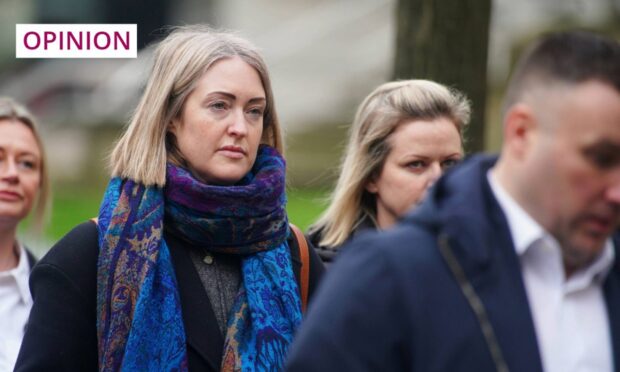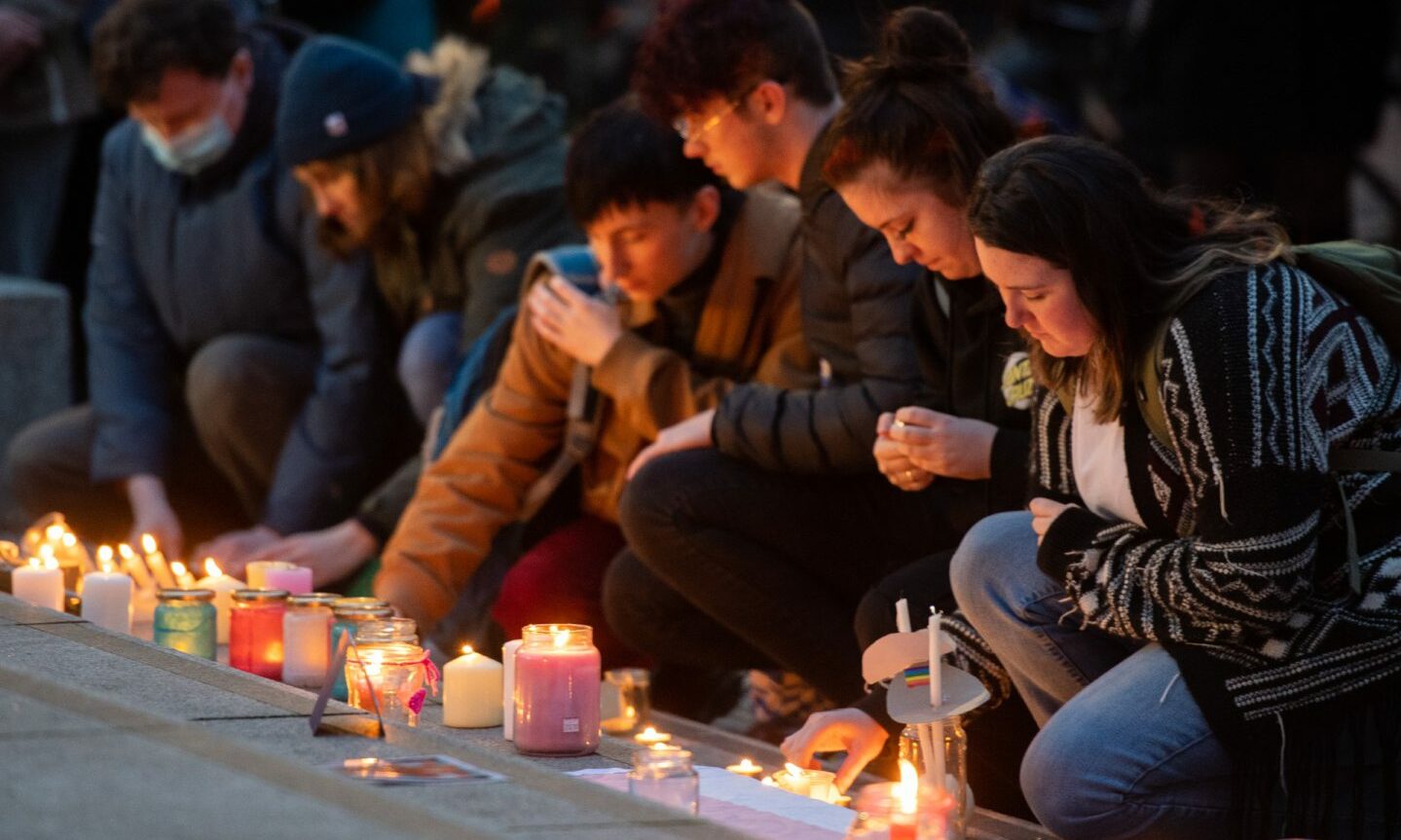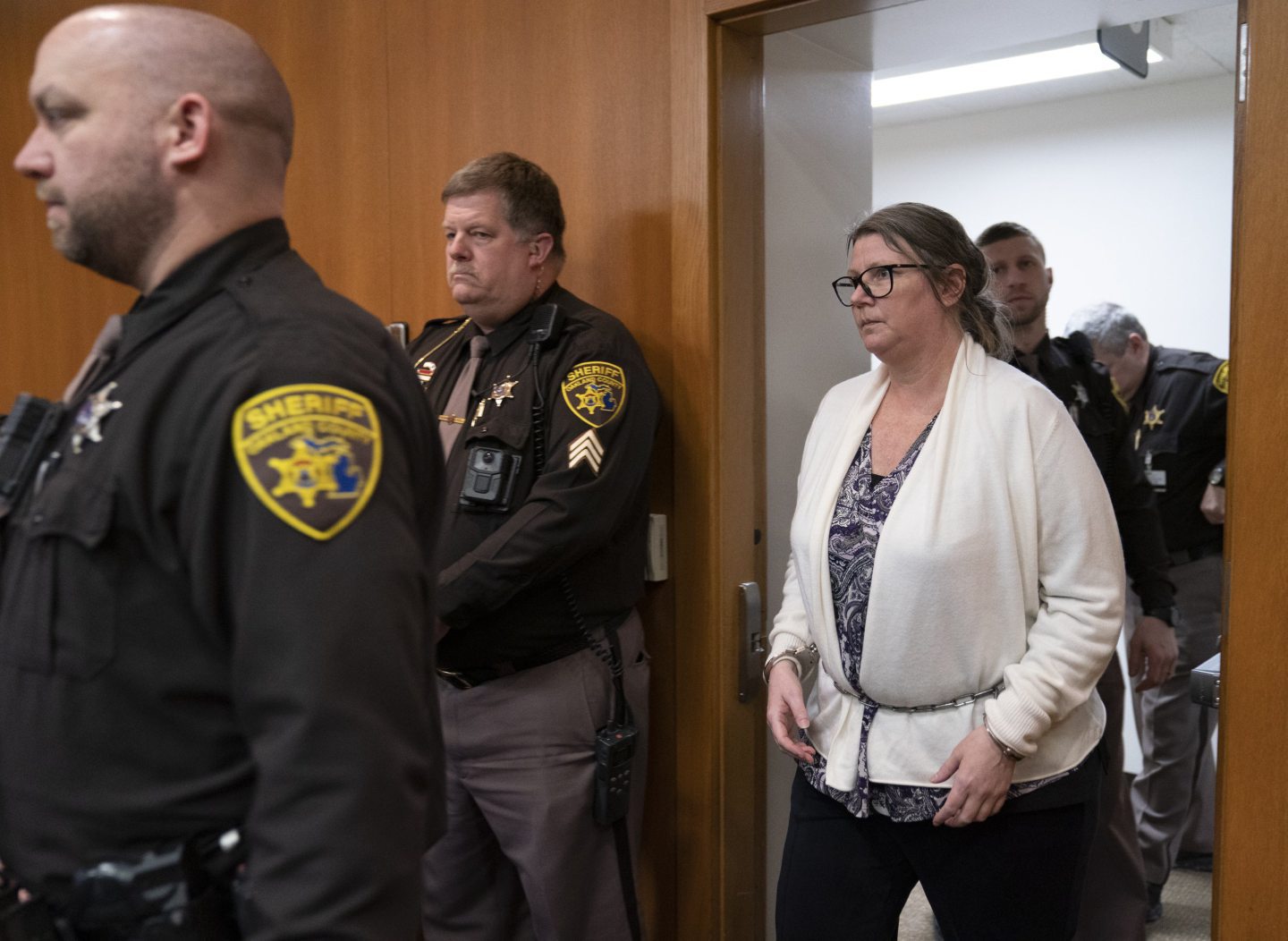Three mothers; a triangle of grief. They stand apart, yet together form a recognisable shape.
The impressive Esther Ghey, whose 16-year-old daughter Brianna was brutally murdered, stands at one corner. The mother of Scarlett Jenkinson, one of two teenagers who murdered Brianna, stands at another.
At the third, American mother Jennifer Crumbley, whose 15 year-old-son Ethan shot dead four people at his Michigan school, and injured seven. The triangle’s vertices each hold a study of maternal grief: like Michelangelo’s Pietà, the mothers hold only the broken remains of their children.
Each illustrates different angles. Esther Ghey, whose remarkable compassion allowed her to express empathy for Jenkinson’s mother, sets the gold standard for public discussion of difficult issues.
There are those who are destroyed by suffering, whose emotional capacities become diminished, disappearing into an ever narrowing vortex. Instead, Esther Ghey reaches outside herself. Should Jenkinson’s mother ever want to speak, she said, “I’m here”.
Scarlett Jenkinson’s mother fully acknowledges the horrific nature of her daughter’s crimes, and the justice of her sentence. She knows the true victims, says she does not want to say anything that will cause Esther Ghey’s family further suffering. There is a reminder here of the human capacity for grace over conflict.
Noteworthy that, while others spoke of “monsters”, Esther Ghey referred to her daughters’ murderers as “Scarlett and Eddie”. The instinct to dehumanise serves no one.
“Monsters” are simply an aberration of nature. There is nothing human that needs to be addressed. No issues to learn from. No actions that could have prevented their monstrous behaviour. Throw them in a cage and walk away. That is not Esther Ghey’s message. There are things to learn here.
A mother on trial for her son’s actions
In Michigan, Jennifer Crumbley sat in court this week, the recipient of waves of public hatred. She cried sometimes during evidence. It was not her son, Ethan, who was on trial. She was. On Tuesday, she was found guilty of four counts of involuntary manslaughter, and now faces up to 15 years of imprisonment.
The many ironies of this are ignored. Jennifer Crumbley was accused of disregarding her son’s mental state. So have the courts.
At 15, he was convicted in an adult court and sentenced to life without parole. If he is mentally ill, why is he being tried as if sane? If he is deemed to have mental capacity, why are his parents responsible?
If America’s ridiculous gun laws allow the Crumbleys to give Ethan a gun for Christmas, how can they be prosecuted for doing so? If Michigan had no law demanding weapons be locked away (it now does), how can his parents be responsible for Ethan’s access to his gun?
We need to look at how we respond to the realities of mental illness. Ethan Crumbley was texting his mother claiming their house was haunted. One school staff member spoke of her incredulity that the formerly quiet Ethan was the gunman. Yet, he had drawn messages asking for help on his books, alongside dead bodies. His parents were called in and told he must get psychological help within 48 hours. That afternoon, Ethan took out his gun and fired.
Our societal panic drives us to call Ethan Crumbley a monster, and his parents irresponsible. To rule he will never be given parole – seriously? A mentally-disturbed 15-year-old child will never, ever be considered for parole? The saddest description of his own trial was when he absolved his parents and said he was “a really bad person”.
We can’t ignore collective responsibility
In cases of extreme horror, there is a public instinct to express outrage, throw away the key, blame those in the immediate vicinity, and ask what on earth is happening to our world. That’s a passive question. It ignores collective responsibility. The active question is: what kind of world are we creating?
Scarlett Jenkinson and her accomplice, Eddie Ratcliffe, accessed the dark web, absorbing details of violence and torture. Last week, Mark Zuckerberg, head of Meta, appeared before an American Senate committee and apologised to parents, who held up pictures of their dead children, for cyberbullying and sexual exploitation that takes place on the platforms he is responsible for.
Sometimes, it’s not the misuse of our laws to blame for tragedy, but the laws themselves
Remove greed, urges Esther Ghey. Stop placing profit over safety. For social media, too, has become a deadly, unregulated weapon. Ghey argues for “under-16” phones that block certain sites and alert parents to disturbing online searches. If we want our world to change, then our thinking must, too.
Sometimes, it’s not the misuse of our laws to blame for tragedy, but the laws themselves. The things we allow; the ideas we encourage. We can’t simply shout easy cliches like “monster” or “psycho” or “bad parent”.
The triangle of grief with its good, bad, worse labels at each corner is a blunt instrument indeed. If Esther Ghey can rise so magnificently above personal grief to call for empathy, understanding and changes to the law, then there’s really no excuse for the rest of us not to do likewise.
Catherine Deveney is an award-winning investigative journalist, novelist and television presenter



Conversation